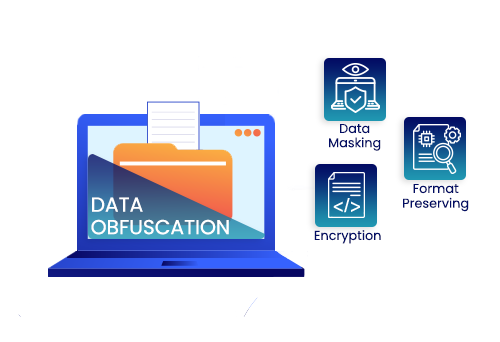Does HIPAA regulations require obfuscated PHI?
No, HIPAA regulations do not specifically mandate the obfuscation of Protected Health Information (PHI). Obfuscation, which is the disguising of data, can be used as a technique to help de-identify PHI, but HIPAA requires a more definitive process for de-identification before data is no longer subject to the Privacy Rule. At PatientGain, we understand that protecting your patients’ sensitive health information is not just a regulatory requirement – it’s a cornerstone of trust between your practice and your patients. While HIPAA compliance sets the standard for safeguarding Patient Health Information (PHI), PatientGain takes your data security a step further with Obfuscated PHI. Not every staff member needs full access to patient details. Obfuscation allows you to limit what information is visible, so only authorized personnel can view sensitive data in its original form.
What is Obfuscated PHI?
Obfuscation is the process of making data unintelligible or less identifiable to unauthorized users, even if they gain access to it. Unlike simple encryption or de-identification, obfuscation transforms PHI in a way that makes it extremely difficult to reverse-engineer or misuse, adding an extra layer of protection on top of HIPAA’s requirements.
How PatientGain’s HIPAA Compliant Dashboard Protects You
PatientGain’s HIPAA compliant dashboard is designed with advanced security features, including data obfuscation. This means that, in addition to meeting all HIPAA standards for privacy and security, your patients’ data is further protected by being obfuscated—making it even less accessible to unauthorized parties.
Key Benefits:
- Double-layered security: HIPAA compliance plus data obfuscation.
- Reduced risk of data breaches: Even if data is accessed, it remains unreadable.
- Peace of mind: Patients and staff can trust that sensitive information is protected at every step.
Why is Obfuscation Important for Medical Practices?
Real-Life Examples:
Accidental Data Exposure:
Imagine a staff member accidentally sends a report containing PHI to the wrong email address. If the data is obfuscated, the recipient cannot read or misuse the information, preventing a potential HIPAA violation.
Third-Party Integrations:
Many practices use third-party tools for billing, marketing, or analytics. If these vendors experience a data breach, obfuscated PHI ensures that any leaked data is useless to hackers, protecting your patients and your reputation.
Internal Access Controls:
Not every staff member needs full access to patient details. Obfuscation allows you to limit what information is visible, so only authorized personnel can view sensitive data in its original form.
Protection Against Cyber Attacks:
In the event of a cyberattack, obfuscated data adds a critical barrier. Even if attackers bypass other security measures, the data they obtain is scrambled and cannot be exploited.


